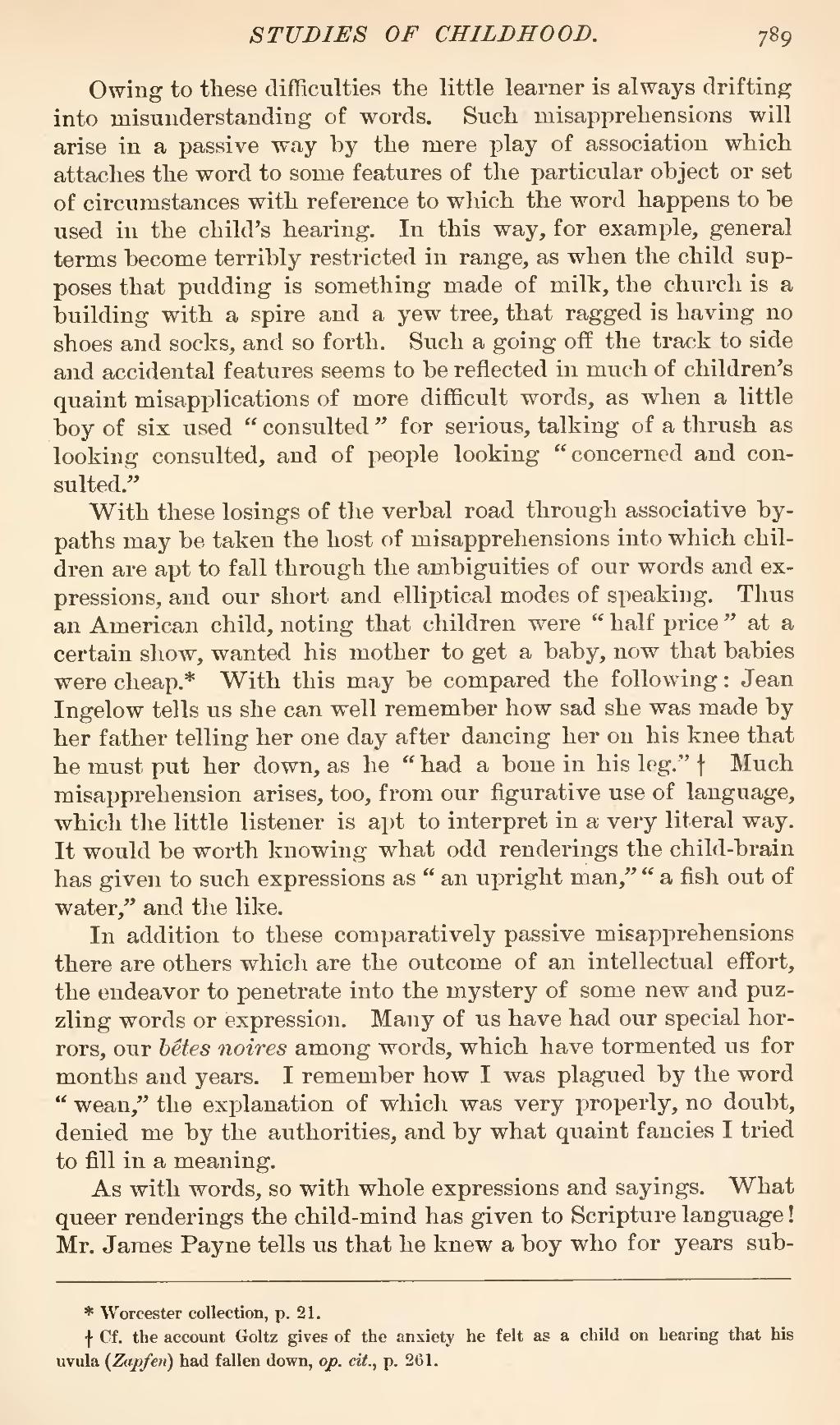Owing to these difficulties the little learner is always drifting into misunderstanding of words. Such misapprehensions will arise in a passive way by the mere play of association which attaches the word to some features of the particular object or set of circumstances with reference to which the word happens to be used in the child's hearing. In this way, for example, general terms become terribly restricted in range, as when the child supposes that pudding is something made of milk, the church is a building with a spire and a yew tree, that ragged is having no shoes and socks, and so forth. Such a going off the track to side and accidental features seems to be reflected in much of children's quaint misapplications of more difficult words, as when a little boy of six used "consulted" for serious, talking of a thrush as looking consulted, and of people looking "concerned and consulted."
With these losings of the verbal road through associative bypaths may be taken the host of misapprehensions into which children are apt to fall through the ambiguities of our words and expressions, and our short and elliptical modes of speaking. Thus an American child, noting that children were "half price" at a certain show, wanted his mother to get a baby, now that babies were cheap.[1] With this may be compared the following: Jean Ingelow tells us she can well remember how sad she was made by her father telling her one day after dancing her on his knee that he must put her down, as he "had a bone in his leg."[2] Much misapprehension arises, too, from our figurative use of language, which the little listener is apt to interpret in a very literal way. It would be worth knowing what odd renderings the child-brain has given to such expressions as "an upright man," "a fish out of water," and the like.
In addition to these comparatively passive misapprehensions there are others which are the outcome of an intellectual effort, the endeavor to penetrate into the mystery of some new and puzzling words or expression. Many of us have had our special horrors, our bêtes noires among words, which have tormented us for months and years. I remember how I was plagued by the word "wean," the explanation of which was very properly, no doubt, denied me by the authorities, and by what quaint fancies I tried to fill in a meaning.
As with words, so with whole expressions and sayings. What queer renderings the child-mind has given to Scripture language! Mr. James Payne tells us that he knew a boy who for years sub-

